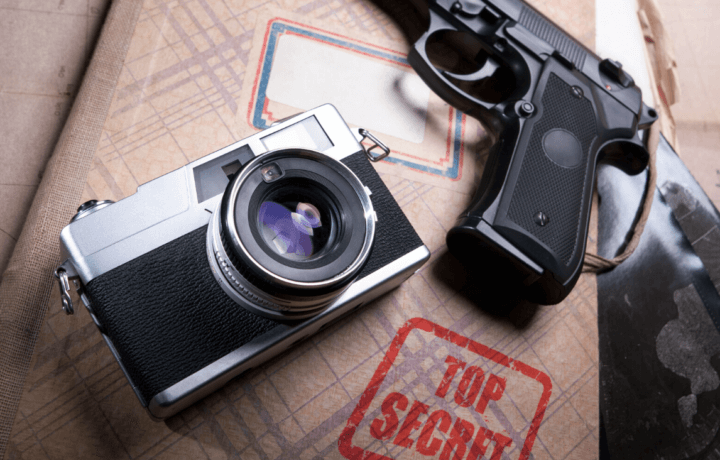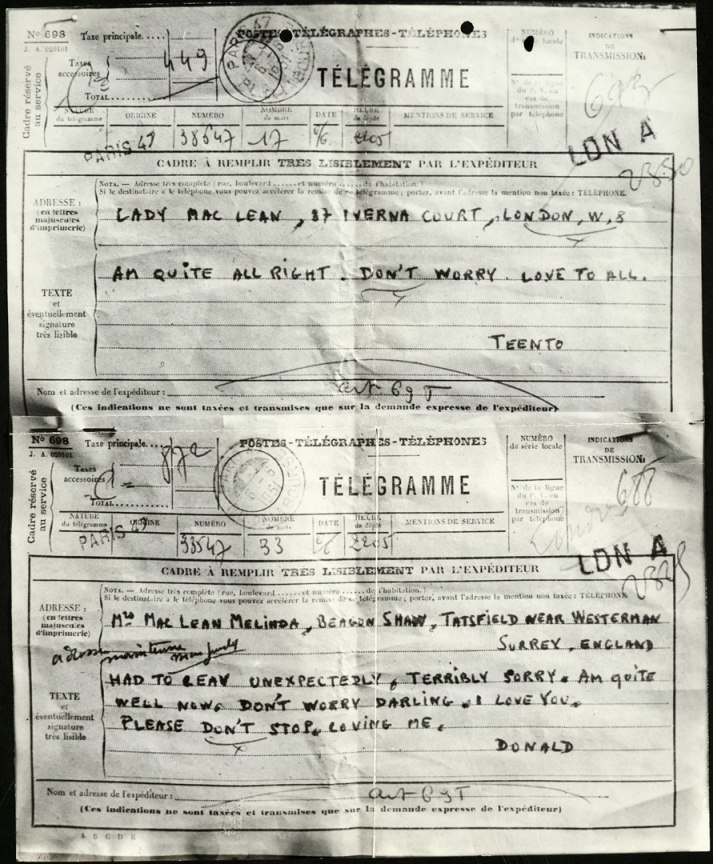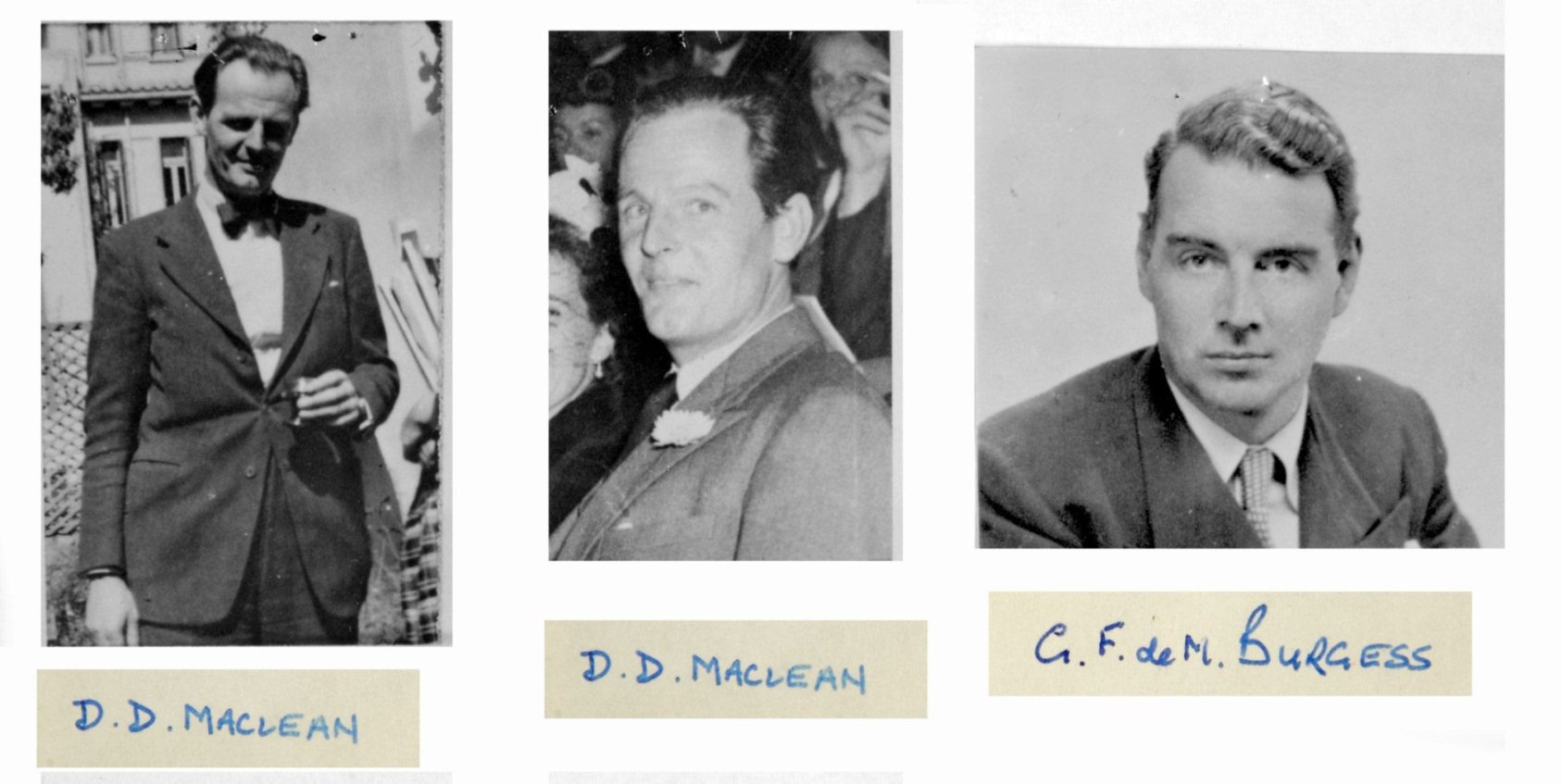The espionage tales of the Cold War are not complete without reference to the Cambridge Five which included Kim Philby (codename Sonny/Stanley), Guy Burgess (codename Hicks), Donald MacLean (codename Homer), John Cairncross (codename Liszt), and Anthony Blunt (codename Johnson). All five who had the University of Cambridge as a commonality and in the 1930s became enamored and deeply believed that Marxism-Leninism was the solution to combating Fascism. Their espionage success were especially noteworthy as their clandestine activities transited the Second World War into the initial years of the Cold War. Philby, Burgess, and Maclean all defected to the USSR to avoid arrest and prosecution. Blunt was identified in 1979 and confessed after having been offered immunity from prosecution and Cairncross was identified in 1990, fired from his government position, yet never prosecuted. It is on this date in history that Burgess and MacLean took their leave of the United Kingdom and disappeared only to reappear some years later in the USSR. Philby would follow some years later, in 1963.
MacLean & Burgess
Donald MacLean (HOMER), was consider by many to be the “archetypal career diplomat.” His linguistic skills landed him in the Foreign Office immediately after graduating Cambridge. His Soviet handler, Kittie Harris, met with MacLean twice a week in her Bayswater flat, where he would bring papers to be photographed and passed on to Moscow. When he was assigned to Paris in the late-1930s he asked Moscow to have Harris sent to Paris and continue to be his handler. Not only was she his go-between to the KGB, she was also his paramour.
It was in Paris where he would meet Melinda Marling. She was a young American living in Paris active in the leftist movement. Later many thought her ignorant of MacLean’s espionage, the reality is rather different, she was fully supportive of his efforts and witting from the beginning of their relationship. She however was also a skilled dissembler, and thus was able to hoodwink all concerned. When reading the history of Melinda’s behavior, one could not help but notice the parallels with Diana Toebbe who was an active supporter of her husband’s efforts to sell U.S. nuclear secrets, yet wish the world and courts to view her as an ingénue.
Guy Burgess (HICKS) some say was brilliant and worked both within MI-5 and MI-6 during the years of the Cold War. He also was well connected in politics, a persona full of charisma and considered during his Cambridge days to have been among the intellectually elite. Indeed, throughout his government career he was subjected to disciplinary actions for his intake of alcohol (which had him described as a complete alcoholic) yet following a 1949 episode in Gibraltar which should have taken him out of access, yet such was not the case, he was sent to Washington DC. In Washington, Burgess lived in the basement of Kim Philby’s house. True to form, it didn’t take him long to get himself in hot water having been stopped multiple times on one trip to and from South Carolina by law enforcement.
According to the British national archives, “Senior Foreign Office figure Gladwyn Jebb’s comment that ‘my general impression was that Burgess was undoubtedly brilliant, and indeed attractive, but he gave me, I confess, a most uneasy feeling’ ”
Philby tips off MacLean
The Venona Project identified Donald MacLean as a KGB source within the UK Foreign Office with 13 references within the now public archives of Venona (see search link) referencing his sharing information in 1945 during his time in Washington DC, where he held the rank of First Secretary. The UK National Archives, made available in 2014 the history of Burgess and MacLean’s defection.
In 1951, Philby had been assigned to Washington DC as the head of the MI-6 office, where the Venona Project was in full swing and where he conducted liaison with the U.S. intelligence community, to include directly with the head of CIA’s counterintelligence effort at the time, David Jesus Angleton. Inquiries were being made about MacLean, at that time MI-5 was aware of MacLean’s espionage and were going to arrange an interview. Philby warned MacLean and advised him to leave immediately. It is widely reported that Philby opined that MacLean would break immediately under interrogation.
He chose May 25, the night of his 38th birthday to exit. Following dinner at home, he said goodbye to his wife Melinda and kids and had Guy Burgess drive him to Southampton to catch the ferry to France. Unexpectedly, Burgess drove his car onto the ferry and also left with MacLean. Once in Paris, MacLean sent a telegram to his wife setting in place a cover story to protect her from prosecution, making it seem as if she was unaware of his espionage. Three weeks after his defection she gave birth to their third child. Years later it would be revealed she was quite aware and she herself made her way to the Soviet Union to join MacLean some time later.
Guy Burgess is considered by some to be the accidental defector.
Guy Burgess would die in Moscow, on August 30, 1963 at the age of 52 years of arteriosclerosis and acute liver failure. Donald MacLean would also die in Moscow on March 6, 1983 from what is believed to be medical problems associated with his prostate.






